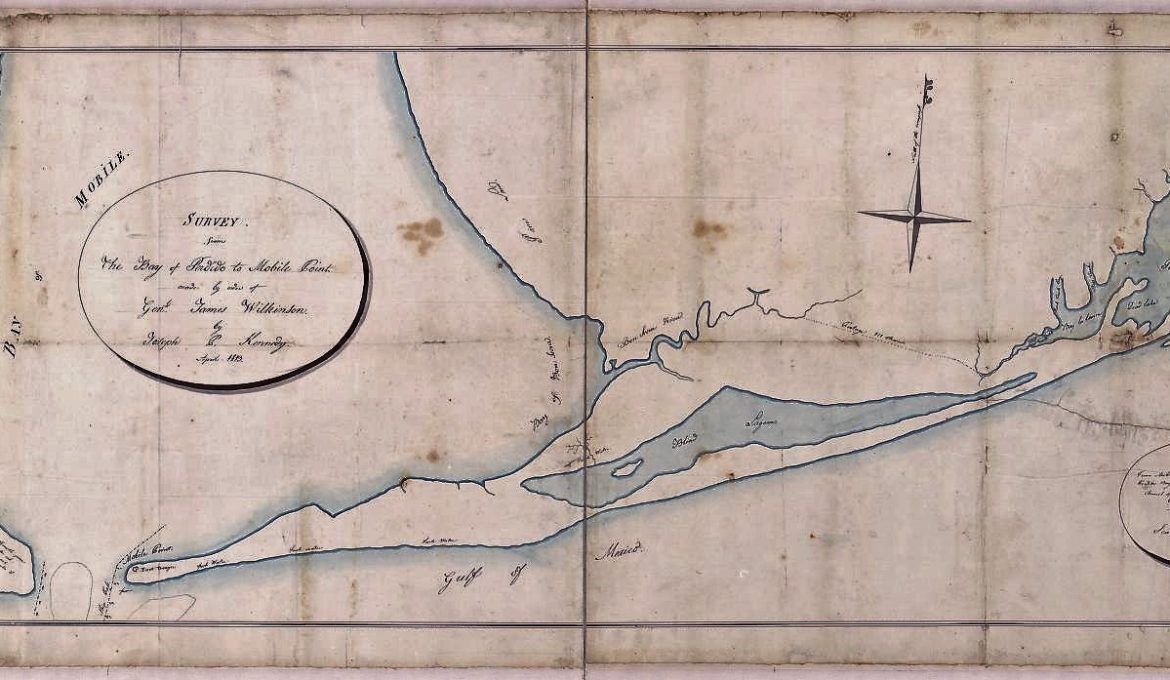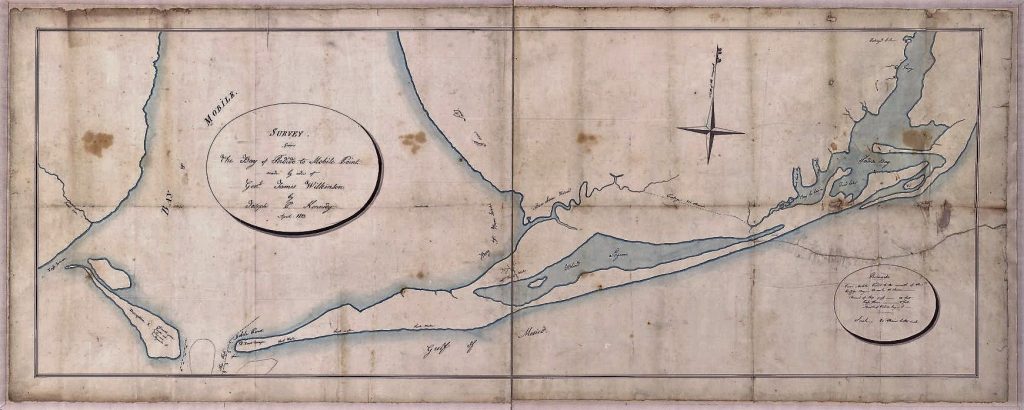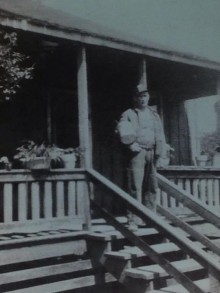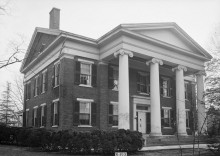Dr. Joseph Dill Alison, the author of this diary was born December 23, 1828, at Charleston, S. C., and died at Carlowville, June 3, 1905. He was the son of Hugh Lee and Mary Catherine (Beekman) Alison, South Carolinians who removed from Charleston to Carlowville, in 1833. The former was educated in Charleston and graduated at the school of medicine at that place. . His grandparents were Jacob Hyleman and Margaret (Lockwood) Alison and Samuel and Anne Lee Beekman, the former a native of New York, a Lieutenant of the First South Carolina Line in the Revolutionary War and was a member of the Cincinnati Society at its founding in 1783.
Dr. Alison attended a boys school in Dallas County and received his college education at Spring Hill, in Mobile. He graduated from a medical school in Charleston, S. C., in 1850, then returned to Dallas County where he practiced medicine until the outbreak of the War Between the States and had the rank of Major in the Confederate Army. At the end of that war he resumed his practice. He was a Justice of the Peace between 1885 and 1895. He was a Democrat and an Episcopalian. On March 11, 1852, he married Henrietta Catherine Reynolds Townsend at her father’s home known as Panther Creek Plantation, in Lowndes County, Ala. They were the parents of twelve children.
Discover, Share and help us Preserve our lost and forgotten stories.
Become an Alabama Pioneers Patron
WAR DIARY OF DR. JOSEPH DILL ALISON
OF CARLOWVILLE, ALABAMA
Part I
Pensacola—May 9th , 1861—Camp life very monotonous.
Horse drill in the morning, on foot in the evening.
10th—Same as yesterday.
11th —Went scouting towards Pensacola.
12th —Sunday. For a wonder no duty today, but all to be within hearing distance of camp. Ten were detailed to bring a boat around from the Perdido (River) which was captured when the four prisoners were taken. After roll call, Ed (P. E. Youngblood) and I went out to the Bayou to get crabs for dinner. Caught as many as we could consume. 4 o’clock—I have just finished assisting in unloading ten wagons of corn and hay, instead of drinking a bottle or two of wine with Capt. Ben. Heard that Governor Moore was at Barancas and would review the Alabama troops. Got permission to go over and see the turn out. I saw seventeen companies of fine looking men, who were well drilled. Had some excitement in our camp today. Bragg had cut our horse feed down to five quarts of corn a day, and it was reported that in a day or two it would be brought down to three quarts. I have bought corn for myself so my horse will not suffer. The men are getting along well now in the feed line. We now get good bacon, corn and wheat flour, sugar, coffee, candles and sometimes rice.
14th —Had a very long drill. Frank (F. O. Lockwood) and Ed both out scouting. This evening, a foot drill with rifles. Theodore and I went to wash our clothes today. In the course of two hours we got through and they were middling clean. Expect an attack to be made on Fort Pickens in a few days. Camp life dull.
15th —Drill, drill, drill, and a bath in the Bayou.
18th —Went with 24 others, under Lt. Wheaton, to relieve the guard on the coast at the mouth of the Perdido. The camp is on Perdido Bay, a half mile from the gulf. The water is very bad, and mosquitoes and flies awful. In five minutes three of us were detailed to cook dinner, and there was I in another mess.
To think of me cooking for twenty-six men, I who had never even fried a piece of bacon! The horse flies are very bad, our horses can hardly stand still for a minute. After dark six of us were taken to the coast to keep guard for the night, my watch was from eleven to two. Wind brisk and breakers grand by moonlight.
19th —Sunday. Entirely beyond the pale of civilization. At a house up the bay, we got some mulberries, milk and butter. There we met the wife of one of the spies we took last week. She asked me some questions that were hard to answer. I got out of the scrape somehow, could honestly say I did not know
what was done with the spies. Still I believe they were hanged.
22nd —Van left this morning, after telling the Captain to be sure and let him have the first vacancy.
28th —Went to Pensacola and dined at Dr. Lee’s. Found the city under martial law, sentinels stationed at every corner demanding tickets of everyone who looked like a soldier. Keeps them out of drinking houses; have to do considerable jockeying to get a julep. Called at the quarters of the Cahaba Rifles. There is some sickness in their camp.
June 2nd —Went alone to look for preaching. After two hours hard riding, returned unsuccessful. It is an article little in demand here.
6th —Start this morning to relieve the Perdido scouts. Will be away five days.
11th —Returned today. On the way down met some of the former scouts returning. They gave good accounts of the life and activities of the fleas and mosquitoes. Thought they were romancing, but found to my sorrow, that the report was far short of the truth. I do not think that there were less than a hundred fleas on me any time while I was there, except when I had my clothes off. The first night I spent in fighting the “varmints.” Second night, after my watch was over, I joined R— who had gone to look for a place to sleep in comfort, found him on a hill 200 yards back of our camp, preparing to retire. He had made a fire and was hunting fleas, in which amusement I took a hand. In the course of half an hour we thought ourselves to be in fit condition to sleep. But alas to our anticipation! In less than five minutes we were as bad off as ever, so we trimmed our fire and returned to the attack. What a scene for an artist— two fine specimens of manhood arrayed in birthday apparel, standing by a large fire on a lone hill in a dreary country, catching fleas. The same tableau was acted six times in five hours, when we gave up as conquered and surrendered at discretion, We next turned our attention to mosquitoes and gnats which amused us until breakfast time, which found us very much exhausted from our exertions. I began to think things not very pleasant.
12th —Last night was agreeably surprised to see Joe come into camp. He will be worth a mint to me. (Joe Clark was Dr. Alison’s Negro body-servant. From this time on he was with his master until the end of the war.)
18th —We got back to camp at one o’clock in the morning, bringing a SCO pound turtle. A fine one it was. We got 500 eggs out of her.
19th —Turtle steak for breakfast. S. and I dined with Haile. His cook is a regularly educated one, and we wished to have our turtle in perfection. The dinner was too good to think about. ,
23rd —Ed and I went to look for preaching, but after hard riding for two hours gave up the job.
25th —Reported ourselves to Capt. Kent at the Navy Yard. We were detailed to go to every house in Warrington and Woolsey and order the women and children to leave within 24 hours as Bragg expected the ball to commence in a day or two. The rest of the afternoon we spent in looking at the mortar batteries and flying artillery practicing at a target. They did good shooting. Returned to camp by dusk and stood guard at night. While keeping watch, we saw a large transport steamer, with a schooner in tow, pass about three miles from the beach. With our telescope we could see the decks of them were crowded with men. Feared they may attempt to land. We had only twenty men and were ten miles from assistance. But the vessels held to their course. intrenched themselves on the Lagoon. If this is true, our men on Perdido are prisoners. The guns from Perdido to McRae are now practicing and have kept up a steady fire all morning. I hope it means something.
July 8th —The rumor of the sixth is without foundation.
9th —Our position is very dangerous in case the enemy do land. With any knowledge of the country, they could land and cut off our retreat. General Bragg has ordered the 1st Mississippi Regiment to assist on the coast.
12th —A boat loaded with twenty-five of the enemy tried to make a landing on our lonely beach. A sharp firing ensued. This is the first time I ever shot at a man. The enemy retreated. As long as it was light enough to see the boat, she was making for the steamer. After dark, they signaled each other. A guard was left on shore while the rest of us returned to camp. We had only thirty cartridges, rather too few to defend ourselves with. The Lieutenant ordered me to headquarters for more. There, I got a drink, ten rounds of cartridges and a fresh horse. Reached camp at daylight. Glad to find all the boys safe, but very tired, having all stood guard that night. I was pretty used up, having been in my saddle for almost twenty-four hours. Slept “an hour. Was aroused with the alarm that the enemy were coming. I called Joe to saddle my horse while I ate breakfast, not wishing to be shot on an empty stomache. Was ready to march as soon as the order to march was given. Got there too late. The enemy, when we arrived had got into their boat and were pulling out their best, too far to reach them with our guns. To be revenged on us, they fired a few rounds which fell harmlessly at our feet. We did not return the fire, we could not afford to waste our powder.
Survey from the bay of Perdido to Mobile Point made by order of Genl. James Wilkinson (Library of Congress)
ALABAMA FOOTPRINTS – Volume I – IV: Four Volumes in One
The first four Alabama Footprints books have been combined into one book,
From the time of the discovery of America restless, resolute, brave, and adventurous men and women crossed oceans and the wilderness in pursuit of their destiny. Many traveled to what would become the State of Alabama. They followed the Native American trails and their entrance into this area eventually pushed out the Native Americans. Over the years, many of their stories have been lost and/or forgotten. This book (four-books-in-one) reveals the stories published in volumes I-IV of the Alabama Footprints series.






